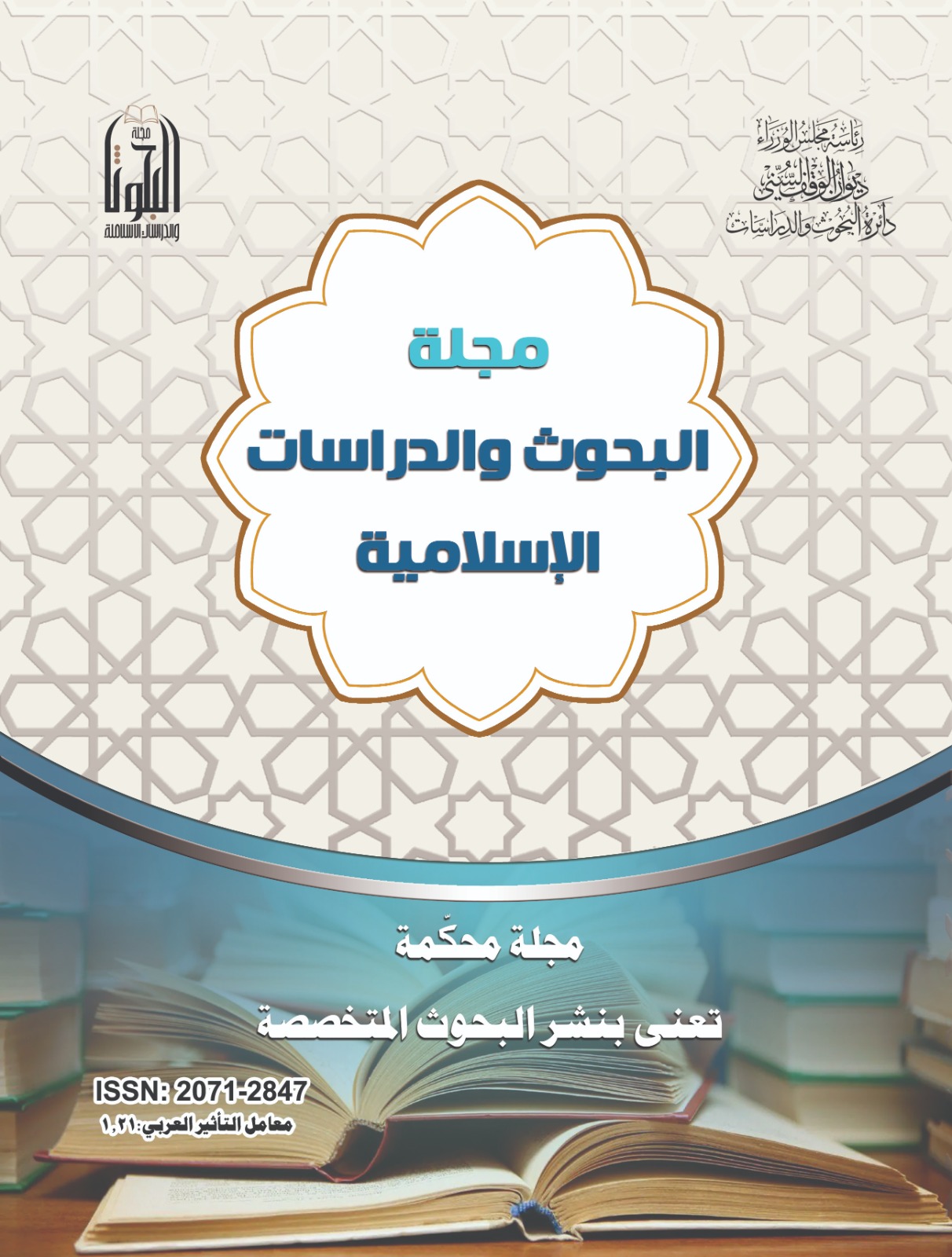Abstract
Islamic history witnessed decisive and fateful positions of personalities and heroes upon whom Islamic civilization was founded. Among those who confronted positions that would have shaken the foundations of the Islamic state is Abu Bakr al-Siddiq (), the second person in Islam after the Messenger of Allah (). The research included some important positions that he was exposed to it when he assumed the caliphate after the Messenger of Allah (), because of the importance of these decisive positions in Islamic history, and for the right of the Companions to Muslims to publish their deeds and deeds to the people and explain the history of our Islamic nation, was the reason for choosing this topic, and the research included three sections, which dealt with the first section is the political stances to which Caliph Abu Bakr al-Siddiq () was exposed when he assumed the caliphate, including the incident of the death of the Messenger of Allah () and the Saqifat of Bani Sa’idah incident, and laying the foundation and method of his rule and policy for the Islamic nation, while the second section dealt with the military positions by enforcing the Osama bin Zaid () army, and the wars of the apostates who apostatized from Islam after the death of the Messenger of Allah (), and the initiation of Islamic conquests. Finally, the third section dealt with social positions by initiating the codification of the Holy Qur’an in order to preserve it after many hadiths were martyred in the wars of apostasy, in addition to its fairness in distributing the money revenues that were it goes back to the Muslim treasury. These positions revealed that the first caliph of the Muslims, Abu Bakr al-Siddiq (), possessed unparalleled political acumen, military leadership, and exceptional social management.
Keywords
Abu Bakr al-Siddiq
Companions deeds.
Companions deedsKey words: Saqifah Bani Sa'idah
Islamic Caliphate
Islamic history
Key words: Saqifah Bani Sa'idah
Abstract
شهد التاريخ الإسلامي مواقف حاسمة ومصيرية لشخصيات وأبطال قامت عليهم الدولة الإسلامية، ومن هؤلاء الذين تصدوا لمواقف كادت أن تزعزع أسس دولة الإسلام هو الصحابي الجليل خليفة المسلمين أبو بكر الصديق ()، الشخص الثاني في الإسلام بعد رسول الله ()، فقد تضمن البحث بعض المواقف المهمة التي تعرض لها حين توليه الخلافة بعد رسول الله ()، لما لهذه المواقف الحاسمة من أهمية في التاريخ الإسلامي، ومن باب حق الصحابة على المسلمين نشر أعمالهم وأفعالهم للناس وبيان تاريخ أمتنا الإسلامية كان سبباً في اختيار هذا الموضوع، واشتمل البحث على ثلاث مباحث، تناول المبحث الأول المواقف السياسية التي تعرض لها الخليفة أبو بكر الصديق () عند توليه الخلافة من حادثة وفاة الرسول () وحادثة سقيفة بني ساعدة ووضع أساس ومنهج حكمه وسياسته للأمة الإسلامية، فيما تناول المبحث الثاني المواقف العسكرية وذلك بإنفاذ جيش أسامة بن زيد ()، وحروب المرتدين الذين ارتدوا عن الإسلام بعد وفات الرسول ()، والمباشرة بالفتوحات الإسلامية، وأخيراً تناول المبحث الثالث المواقف الاجتماعية بالمبادرة بتدوين القرآن الكريم حفاظاً عليه بعد أن استشهد الكثير من الحفاظ في حروب الردة، فضلاً عن عدالته في توزيع واردات المال التي كانت ترد إلى بيت مال المسلمين، وقد كشف هذه المواقف أن خليفة المسلمين الأول أبو بكر الصديق () صاحب حنكة سياسية وقيادة عسكرية وإدارة اجتماعية فذة لا مثيل لها.
Keywords
الكلمات المفتاحية: سقيفة بني ساعدة، التاريخ الإسلامي، أبو بكر الصديق، الخلافة الإسلامية، أفعال الصحابة، خليفة المسلمين.
